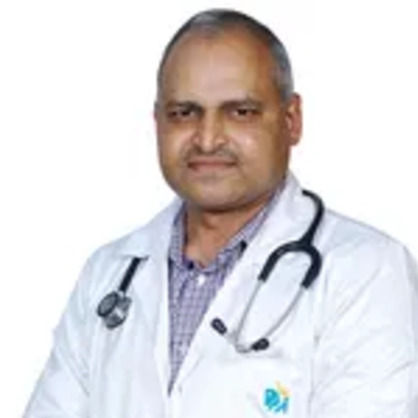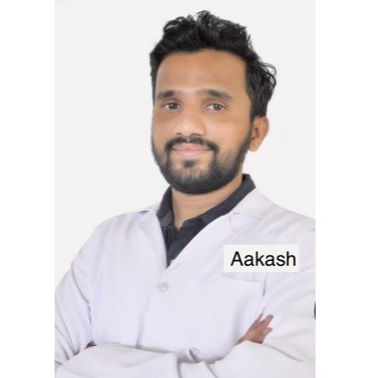Causes of Cervical Cancer Explained
Understand the primary causes of cervical cancer, focusing on the human papillomavirus (HPV) infection. Learn about other risk factors, the importance of HPV vaccination, regular screenings, and how these elements contribute to prevention.

Written by Dr. M L Ezhilarasan
Reviewed by Dr. Rohinipriyanka Pondugula MBBS
Last updated on 19th Aug, 2025

Cervical cancer is a serious health concern that affects thousands of women worldwide. Understanding its causes can help in prevention and early detection, which significantly improves treatment outcomes. If you or a loved one has concerns about cervical cancer, this article will guide you through its causes, risk factors, and ways to reduce your risk.
What Is Cervical Cancer?
Cervical cancer develops in the cervix, the lower part of the uterus that connects to the vagina. It usually grows slowly over time and is often caused by persistent infections from certain types of the human papillomavirus (HPV). While HPV is common and often harmless, some high-risk strains can lead to cervical cancer if left untreated.
Main Causes of Cervical Cancer
The main causes of cervical cancer includes:
1. Human Papillomavirus (HPV) Infection
The primary cause of cervical cancer is long-term infection with high-risk HPV types, particularly HPV16 and HPV18. These viruses are sexually transmitted and can cause changes in cervical cells that may lead to cancer over time.
How HPV Leads to Cancer:
- Most HPV infections clear up on their own.
- If the immune system doesn’t fight off the virus, it can cause abnormal cell growth.
- Over years, these abnormal cells can turn into cancer if not detected early.
2. Weakened Immune System
A strong immune system helps fight HPV infections. However, conditions like HIV/AIDS or medications that suppress immunity (such as after an organ transplant) can increase the risk of cervical cancer.
3. Smoking
Smoking weakens the body’s ability to fight HPV infections. Chemicals in tobacco can damage cervical cells, increasing the risk of cancer.
4. Long Term Use of Birth Control Pills
Women who have used oral contraceptives for five or more years may have a slightly higher risk of cervical cancer. However, the risk decreases after stopping the pills.
5. Multiple Pregnancies
Women who have had three or more fullterm pregnancies may have a higher risk, possibly due to hormonal changes or increased exposure to HPV.
6. Family History
A family history of cervical cancer may slightly increase risk, suggesting a possible genetic link.
7. Poor Diet & Lack of Essential Nutrients
A diet low in fruits and vegetables may weaken the immune system, making it harder to fight HPV infections.
8. Early Sexual Activity & Multiple Partners
Starting sexual activity at a young age or having multiple sexual partners increases exposure to HPV.
Consult Top Physician
How to Reduce Your Risk of Cervical Cancer?
Ways to reduce the risk of cervical cancer:
1. Get Vaccinated Against HPV
The HPV vaccine (Gardasil, Cervarix) protects against the most dangerous HPV strains. It is recommended for:
- Girls and boys aged 9-14 (two doses).
- Women and men up to age 26 (three doses if started after 15).
- Some adults up to age 45 (consult a doctor).
2. Regular Pap Smears & HPV Tests
- Pap smears detect abnormal cervical cells before they turn cancerous.
- HPV tests check for high-risk HPV strains.
Recommended Screening:
- Ages 21-29: Pap test every 3 years.
- Ages 30-65: Pap + HPV test every 5 years (or Pap alone every 3 years).
3. Practice Safe Sex
- Use condoms to reduce HPV exposure.
- Limit the number of sexual partners.
4. Quit Smoking
Stopping smoking helps your body fight HPV and reduces cancer risk.
5. Eat a Healthy Diet
- Include fruits, vegetables, and antioxidants to boost immunity.
- Foods rich in folate (leafy greens, beans) may help protect cervical cells.
6. Maintain a Strong Immune System
- Exercise regularly.
- Get enough sleep.
- Manage stress.
When to See a Doctor?
If you experience any of these symptoms, consult a doctor:
- Abnormal vaginal bleeding (after sex, between periods, or after menopause).
- Unusual vaginal discharge (bloody, foulsmelling).
- Pelvic pain during sex or otherwise.
Early detection saves lives! If you’re due for a Pap smear, HPV test, or HPV vaccination, consider booking a consultation with a specialist through Apollo 24|7.
Final Thoughts
While cervical cancer is a serious condition, knowing its causes and taking preventive steps can greatly reduce your risk. Regular screenings, a healthy lifestyle, and vaccination are your best defenses.
If you have concerns or need guidance, don’t hesitate to reach out to a healthcare provider. Stay informed, stay protected!
Book a cervical cancer screening or HPV vaccination today on Apollo 24|7 for expert care.
Consult Top Physician
Consult Top Physician

Divyashree K
General Physician/ Internal Medicine Specialist
5 Years • MBBS
Bengaluru
Apollo Clinic, JP nagar, Bengaluru

Dr. Swagata Sircar
General Physician/ Internal Medicine Specialist
8 Years • MBBS, MD General Medicine
Kolkata
HealthYou Speciality Clinic & Diagnostics., Kolkata
(50+ Patients)

Dr. Smitha Nagaraj
General Physician/ Internal Medicine Specialist
15 Years • MBBS, Diploma in Family Medicine
Bengaluru
Apollo Medical Center, Marathahalli, Bengaluru

Dr. Dhanraj K
General Physician/ Internal Medicine Specialist
25 Years • MBBS, MD Internal Medicine - Osmania Medical College, Hyderabad
Hyderabad
Apollo Hospitals Jubilee Hills, Hyderabad
(375+ Patients)

Dr Aakash Andgi
General Physician/ Internal Medicine Specialist
9 Years • MBBS MD
Bengaluru
Apollo Clinic, JP nagar, Bengaluru
Consult Top Physician

Divyashree K
General Physician/ Internal Medicine Specialist
5 Years • MBBS
Bengaluru
Apollo Clinic, JP nagar, Bengaluru

Dr. Swagata Sircar
General Physician/ Internal Medicine Specialist
8 Years • MBBS, MD General Medicine
Kolkata
HealthYou Speciality Clinic & Diagnostics., Kolkata
(50+ Patients)

Dr. Smitha Nagaraj
General Physician/ Internal Medicine Specialist
15 Years • MBBS, Diploma in Family Medicine
Bengaluru
Apollo Medical Center, Marathahalli, Bengaluru

Dr. Dhanraj K
General Physician/ Internal Medicine Specialist
25 Years • MBBS, MD Internal Medicine - Osmania Medical College, Hyderabad
Hyderabad
Apollo Hospitals Jubilee Hills, Hyderabad
(375+ Patients)

Dr Aakash Andgi
General Physician/ Internal Medicine Specialist
9 Years • MBBS MD
Bengaluru
Apollo Clinic, JP nagar, Bengaluru



